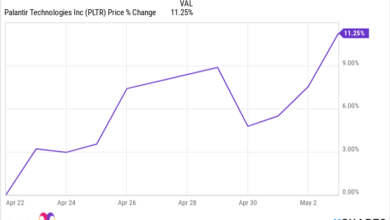FTC Chair Khan’s Comments on AI Training Data Spark Debate

In a bombshell that has Silicon Valley abuzz and online commerce bracing for impact, the tech industry’s top cop has fired a shot across the bow of artificial intelligence.
Federal Trade Commission Chair Lina Khan suggested May 22 that tech giants training their AI models on news articles, artwork and personal data could be on a collision course with antitrust laws.
At The Wall Street Journal’s “Future of Everything Festival,” Khan reportedly said: “The FTC Act prohibits unfair methods of competition and unfair or deceptive acts or practices. So, you can imagine, if somebody’s content or information is being scraped that they have produced, and then is being used in ways to compete with them and to dislodge them from the market and divert businesses, in some cases, that could be an unfair method of competition.”
Her statement sparked heated debate among tech and legal experts about the future of AI and whether regulators are about to crash the party.
Data Ownership and Monetization in the Crosshairs
As AI advances at a breakneck pace, the question of how these powerful models are trained has come under increasing scrutiny. Many AI systems rely on vast amounts of data scraped from the internet, including news articles, social media posts and even personal information. While this data has been crucial in enabling AI to achieve remarkable feats, from generating realistic images to engaging in natural conversations, it has also raised concerns about privacy, intellectual property rights, and now, according to Khan, antitrust issues.
Ann (Gregg) Skeet, senior director of leadership ethics at the Markkula Center for Applied Ethics at Santa Clara University, said she sees Khan’s comments as part of a broader trend in her leadership at the FTC.
“Lina Khan is a creative leader, leaning on the foundation of the FTC, the act that established it, to draw attention to marketplace failures in an emerging area, the governance of AI,” Skeet told PYMNTS. “She is continuing with themes introduced in her breakthrough academic paper about Amazon to encourage consumers and regulators to view corporate behavior through new lenses.”
Skeet also raised questions about the practices of some AI companies, asking, “Are the practices of some companies developing AI systems deceptive? If so, she is putting those companies squarely in the FTC’s sights. She’s anticipating problems that could unfold if companies are given free rein without having to take responsibility for how they are protecting consumer data.”
Jamie E. Wright, a Los Angeles lawyer who handles antitrust cases, agreed with Khan’s assessment.
“Using data from news websites, artists’ creations or personal information without permission can definitely be an antitrust issue,” Wright told PYMNTS. “It gives some companies unfair advantages, stifles innovation from smaller players, and exploits the hard work of individuals without compensating them. Balancing AI advancements with protecting intellectual property and privacy rights is crucial.”
If the FTC takes action, Wright said she believes AI companies could face changes.
“They might face stricter rules on how they collect and use data for training their models, leading to higher compliance costs and potential fines,” she explained. “This could slow down innovation since companies would need to implement better data governance and get clear permissions to use certain data. Overall, this could make the development of AI more challenging and expensive.”
According to Wright, enforcement action is looking more likely, especially with Khan at the helm of the FTC.
“She’s been really focused on keeping tech companies in check and has a strong commitment to regulation,” Wright said. “Given all the concerns about data privacy, intellectual property rights and competition, the FTC is likely to take action soon. However, the specifics will depend on ongoing investigations and how the legal battles play out.”
The debate has also raised questions about data ownership and monetization in the digital age. Some experts argue that individuals and creators should have more control over their data and intellectual property use and be compensated accordingly.
Potential Ripple Effects on Online Commerce
Wright said she believes that FTC action could have an impact on online commerce.
“By promoting fair competition and ensuring ethical use of data and creative works, smaller companies could have a better chance to compete,” she said. “Consumers might also benefit from better privacy protections and more trust in online platforms. However, businesses could face some disruptions as they adapt to new rules and potentially higher costs. But in the long run, it could lead to a healthier, more competitive market.”
As the FTC grapples with these complex issues, the tech industry and legal experts will be closely watching to see how the regulatory landscape evolves. With AI poised to transform virtually every aspect of our lives, from healthcare to finance to entertainment, the stakes could not be higher. The outcome of this debate could have far-reaching consequences for the future of commerce and innovation in the digital age.
For all PYMNTS AI coverage, subscribe to the daily AI Newsletter.



